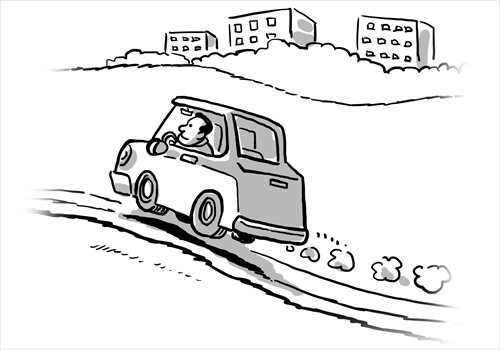Purge may mean Pyongyang’s swerve away from Beijing

Illustration: Liu Rui/GT
Two years after North Korea's young leader Kim Jong-un took power, he surprised everyone with the sudden decision to execute his uncle Jang Song-thaek who had assisted him since his father Kim Jong-il's death.
Why did the young supremo take such a swift move, exterminating so-called opposition forces just when the country had finally seen some fruits of economic modernization? What changes does the fall of Jang, previously the second most powerful figure in the North, bring to the country's power structure?
What influence will the purge wield on Pyongyang's political and military scenes in the future? Can Northeast Asia endure the repeated vicissitudes in the North's domestic and foreign affairs? And what is the future for this last frontier of the Cold War?
It appears at first glance that the execution of Jang is just an internal affair of Pyongyang, but in actuality it mirrors the divergences among the party, the government and the military forces regarding diplomatic policies and further reveals Pyongyang's anxious desire to shake off its overdependence on China and find a way out of the deadlock with the US.
Although Pyongyang is predicted to confront enormous difficulties in the future, it might proceed along the following trajectory.
To start with, Jang's fall shows that North Korea has been seeking de-Sinification.
Even in the era of Kim Jong-il, the top leadership did not buy into Jang's proposal to guarantee Pyongyang's security through deepening the strategic partnership with China. The late North Korean supreme leader tried both hard and soft tactics to get Washington back to the negotiation table of the Six-Party Talks.
Then, if Pyongyang's strategic transformation of de-Sinification turns out to be true, we can see that the state is pursuing what might loosely be called a "pro-US" stance.
If the execution of Jang is interpreted as an acceleration of the de-Sinification process, then it makes sense that Pyongyang is probably seeking what might be loosely called a "pro-US" strategy. In the North's history, there is plenty of examples of pro-Chinese figures being purged under the pretense of domestic affairs. Jang's death could result in the acceleration of the North re-orienting to the US.
Furthermore, Jang's purge was dominated by hard-liners in North Korean military forces, symbolizing a new beginning for the Songun, or military-first, policy.
It is using the Juche ideology of self-reliance and the Songun ideal as a political and military foundation to maintain its regime and hereditary system, and the loyalty and stability of the army as a powerful guarantee of its destiny.
It is certain that the fall of Jang, a moderate in foreign policy and an opponent of missile launches and nuclear tests, will facilitate the resurgence of hard-line military factions.
In addition, it will also increase the odds of a fourth nuclear test, and the development of nuclear capacities will be given more priority than economic growth.
A tough North Korea will also likely pose a more imminent challenge to its southern neighbor, and the Northeast Asia Peace and Cooperation Initiative put forward by South Korea's President Park Geun-hye will encounter increasingly complicated hardships.
Kim Jong-un, who has just turned 30, may replace his former guardian with a group of advisors. In the wake of Jang's incident, the issue of whether young Kim needs a guardian or a group of assistants comes to light.
Will the military forces represented by Choe Ryong-hae and Jang Jong-nam gain more power? How will Kim master the relationship between the party and the army? Many other quandaries will test the political wisdom and courage of the world's youngest head of state.
The author is director of the Institute of Northeast Asian Studies, Heilongjiang Provincial Academy of Social Sciences. opinion@globaltimes.com.cn
Related article: Kim Jong-un’s economic commitment underestimated